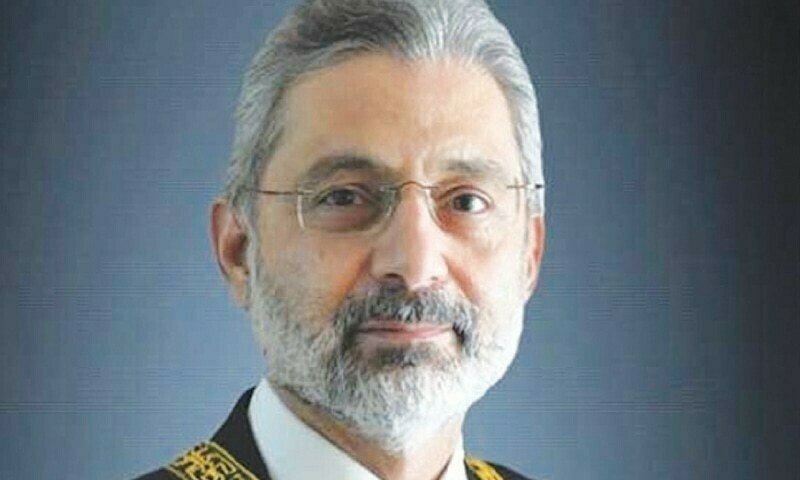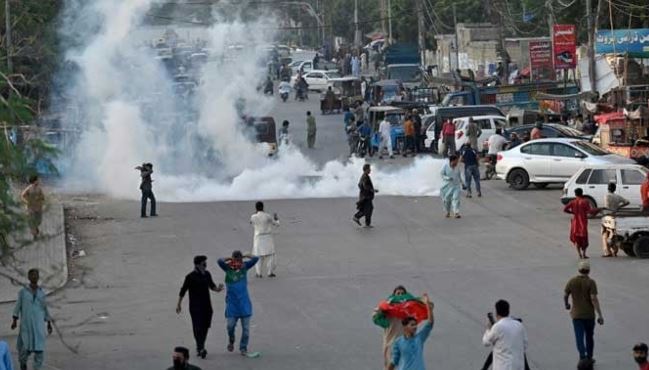Chief Justice of Pakistan (CJP) Qazi Faez Isa on Monday remarked that the Supreme Court’s verdict on lifetime disqualification and the amendments made to the Elections Act, 2017 could not co-exist.
In a landmark verdict in 2018, the apex court had ruled that disqualification handed down under Article 62 (1)(f) of the Constitution was supposed to be “permanent”.
The law, which sets the precondition for a member of parliament to be “sadiq and ameen” (honest and righteous), is the same provision under which former prime minister Nawaz Sharif was disqualified in the Panama Papers case. Imran Khan was also disqualified under the same article in the Toshakhana case earlier this year.
However, in June, the then-coalition government had passed an amendment to the Elections Act 2017, which limited the disqualification of lawmakers to five years with retrospective effect.
Today, CJP Isa observed that either the SC’s 2018 verdict or the Election (Amendment) Act, 2023 could be upheld. He passed these remarks as the apex court took up a petition filed by ex-MPA Meer Badshah Khan Qaisrani against his disqualification.
During the hearing, Justice Isa noted that discrepancies in the SC’s interpretation and the law could result in “confusion” in the upcoming general elections and sent the matter to a three-judge panel, which would form the bench that would hear the case.
He also issued notices to Attorney General for Pakistan (AGP) Mansoor Usman Awan, advocate generals of all the provinces and the Election Commission of Pakistan (ECP) to assist the SC.
Meanwhile, Justice Athar Minallah asserted that polls would be held on February 8 and warned that anyone spreading uncertainty regarding elections would be guilty of contempt.
The hearing
At the outset of the proceedings today, CJP Isa inquired why Qaisrani was disqualified. Advocate Saqib Jilani replied that his client was disqualified under Article 62(1)(f) of the Constitution on the basis of a fake degree in 2007. In 2018, the Lahore High Court had granted the ex-MPA permission to contest polls.
Justice Minallah pointed out here that the case was connected to the 2018 elections and inquired if it was still admissible in the run up to the upcoming polls. However, Jilani contended that the current case would have an impact on the upcoming elections as well.
Meanwhile, Justice Isa asked: “How can lifetime disqualification continue if a person’s sentence comes to an end?”
In his response, the lawyer said that a person should be disqualified for submitting nomination papers on false affidavits, adding that the SC had issued its verdict in the Panama Papers case on the interpretation of Article 61(1)(f).
“There are two opinions on the SC’s lifetime disqualification order,” CJP Isa said here. “If there is a strict punishment of lifetime disqualification in NAB cases, how long would the disqualification be for in murder cases?” he asked.
Advocate Jilani replied that the disqualification of a politician in a murder case is five years. Justice Minallah also noted that even for grave crimes like sexual abuse the punishment was five-year disqualification.
When the top judge then asked if a new law pertaining to Article 62(1)(f) and lifetime disqualification had been passed recently, to which the lawyer said recently the Elections Act was amended and disqualification was limited to five years.
More to follow






